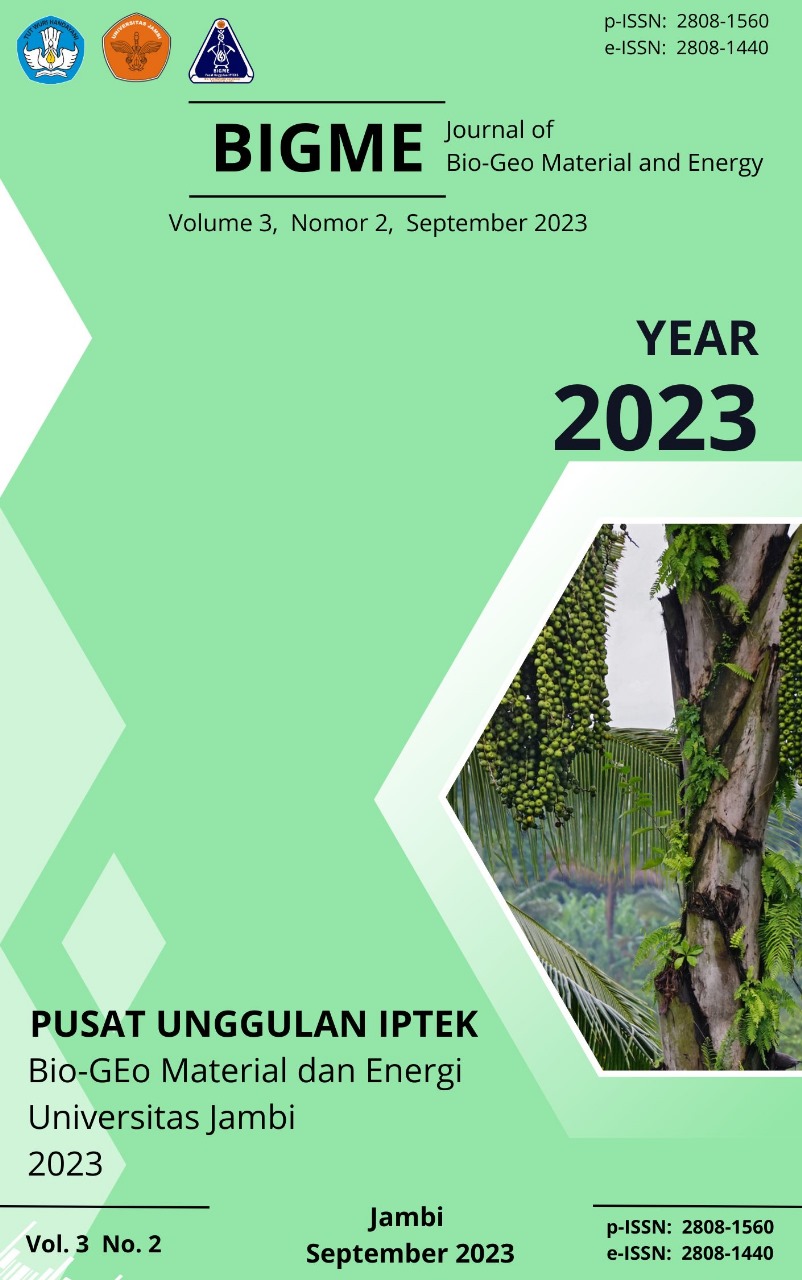Effect Of Hydrothermal Temperature On The Synthesis Of Palm Oil Shell-Based Zeolite
The Synthesis Of Palm Oil Shell-Based Zeolite
DOI:
https://doi.org/10.22437/bigme.v3i2.30827Abstract
Palm oil shells are one of the solid waste in palm oil processing plants, currently the use of palm oil shells is only used as activated charcoal. Though the mineral content potential contained in palm oil shell is very large, one of them is silica (SiO2) of 71.1% with a large amount of this can be used as a source of silica.
The source of silica shell of palm oil in this research is used as the basic material of zeolite manufacture. Zeolite is a hydrated aluminasilicate compound which has many benefits such as catalyst, adsorbent, and ion exchanger. Zeolite fabrication method is a common and widely used hydrothermal method, because this process does not require a high temperature with a relatively short time. Palm oil shells are used to remove carbon in them and the ash is characterised using XRF. Palm oil ash was crushed together with NaOH they were melted at 500°C or 1 hour, and added with distilled water and soaked 24 hours, produced Sodium Silicate and characterised using FTIR. For Alumina, NaOH was reacted with Al(OH)3 to produce Sodium Aluminate and characterised using FTIR. Zeolite preparation was carried out by mixing the sodium silicate and sodium aluminate reactants and the zeolite crystallisation process was carried out using a hydrothermal reactor heated in an oven by varying the hydroternal temperature at 120˚C, 150˚C and 180˚C for 8 hours. Synthesized zeolite was characterised using XRF, XRD and SEM. FTIR analysis Sodium Silicate has been formed at wave number 981.19 cm-1 symmetric vibration Si-O (Na) strectching, and Sodium Aluminate has been formed at wave number 719.87 cm-1 with symmetric vibration Al-O (Na) stretching. The result of XRD characterisation at 120°C produces mixed zeolite of type 4A, Sodalit and Faujasit. At the temperatures of 150°C and 180°C formed Sodalite type zeolite. The best crystallinity was obtained at a hydrothermal temperature of 150°C and analysed using SEM, showing the small cubic crystal form bonding to each other to form an elongated geometry.
Downloads
Downloads
Published
How to Cite
Issue
Section
License
Copyright (c) 2024 lince muis, oki alfernando

This work is licensed under a Creative Commons Attribution 4.0 International License.














